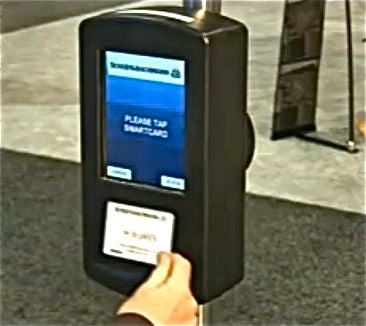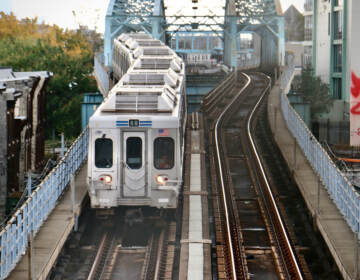A quick look at SEPTA’s potential smart card vendors
SEPTA documents obtained in an open records request, indicate that three companies are bidding for the contract to design and build the authority’s new smart card system: ACS Transport Solutions Group, Scheidt and Bachmann USA Inc. and Cubic Transportation Systems Inc.
Though only Cubic admitted that it’s competing for the contract, letters from SEPTA to the three companies sent about a month ago show all three have been involved in the process.
(SEPTA declined to comment, citing the ongoing procurement process.)
Taken together, the three are some of the most prominent names in transit, having designed smart card systems for some of the biggest transit agencies in world.
Following is an overview of each company:
Affiliated Computer Services
ACS, a logistics company, was bought earlier this year by Xerox Corp. for $5.6 billion. Its transport solutions group, based in Columbia, Md., is “the largest provider of public transportation technology services worldwide, supporting governments in 30 countries,” spokesman Chris Gilligan said in a statement.
The company has designed computer dispatch and Automatic Vehicle Locator systems for 50 public transit systems and government agencies throughout the world. And tolling systems designed by the company process more than 3 billion tolls a year on roadways worldwide, Gilligan said.
On the fare collection side, systems designed by ACS process more than a million fares daily.
In 2006, it won a contract to maintain an online service center in Los Angeles that will integrate the different fare collection systems of the region’s transit authorities.
Recently, its smart card work has been focused abroad. The company was awarded a contract last year to build and operate a smart card system along Peru’s first bus rapid transit line. And in 2008, it won a 13-year contract to build and run a smart card system for Riga, Latvia.
Scheidt and Bachmann
Scheidt and Bachmann, a multinational with headquarters in Germany, bases its American fare collections division in Burlington, Mass.
The company built and installed the Charlie Card system for Boston’s transit agency and focuses on integrated payment approaches ― it designs park and ride lots, for instance, where riders can use a transit system’s smart card to pay for parking.
It also won the contract to build a smart card system for the Port Authority of Allegheny County, in Western Pennsylvania.
Scheidt and Bachmann also manufactures two devices, handheld validating devices and station validators, that SEPTA has expressed an interest in.
The company’s handheld validators allow conductors to verify that riders have paid their fares on commuter trains, and SEPTA has sketched out a plan to install validators at some regional rail stations to ensure riders pay with the new system.
Cubic Transportation Systems Inc.
An undisputed giant in the field, Cubic designed the Metrocard for the New York Metropolitan Transportation Authority, the country’s largest transit system.
Based in San Diego, the company also designed and build the systems currently in place in Washington, D.C., Chicago, Singapore and London.
Closer to home, Cubic replaced PATCO’s original fare collection, which it also built, with the Freedom Card in 2007 and designed the fareboxes used on New Jersey Transit buses.
The company is also experimenting with innovative payment systems. Since 2007, London’s transit system has offered a combined smart and Visa card issued by Barclays Bank. It’s also working with cell phone companies to allow cell phones to be used as fare instruments ― one of SEPTA’s stated interests going forward with its system.
Contact the reporter at acampisi@planphilly.com
WHYY is your source for fact-based, in-depth journalism and information. As a nonprofit organization, we rely on financial support from readers like you. Please give today.








